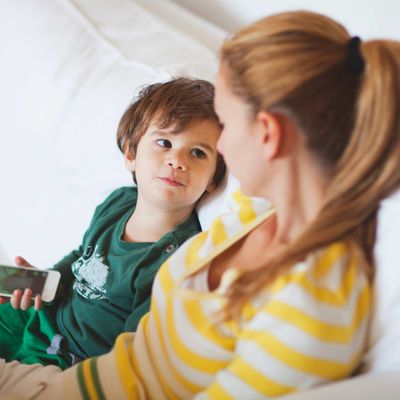
We all tend to think we’re better than we actually are, a pattern known as “illusory superiority” that’s been found in everything from people’s assessments of their driving skills to cancer patients’ expectations for how long they’ll survive. Also known as the above-average effect, the phenomenon holds that all of us, to some degree, are just walking egos: Pick a person off the street, and there’s a good chance they’ll believe themselves to be smarter, tougher, or more good-looking than the average person. Pick a statistician off the street, and they’ll tell you that obviously that’s not true — some people have to be plain old average, and some people have to be below it.
Some people. Not me, though. Ask my parents; pick a category, and they’ll eagerly tell you I’m great in it.
The alternative explanation for this, of course, is that the people that raised me — lovely as they are — may also be somewhat biased by another kind of illusory superiority, one that extends from parents to children. Past research has shown, for example, that parents have a hard time identifying when their own kids are overweight. And a new study, recently published in the Journal of Experimental Social Psychology, found that they’re also pretty bad at catching their kids in a lie.
The researchers recruited 72 parents whose kids were between the ages of 8 and 16 to watch a series of video clips of kids in the same age bracket (as a control group, 79 childless college students watched the same footage). The clips showed kids being interviewed about whether they’d peeked at the answers for a test they’d just taken — all denied cheating, but only some of them were telling the truth. After each video, participants were asked to judge whether the kid was lying, and to rate on a scale of 1 to 100 how confident they were in their choice. Separately, a group of 80 parents watched a single clip of their own child in the same situation.
As it turned out, it didn’t really matter if the person watching the video had a kid, or if the kid they were watching belonged to them or someone else. The two groups of parents and the control group all had average confidence levels between 70 and 76 percent — and all three groups were equally bad at knowing whether they were watching a lie. Across the board, participants got it right ever so slightly more than 50 percent of the time, barely better than if they’d flipped a coin. The groups also all showed what’s known in psychology as “truth bias,” or the idea that people generally want to believe that what they hear is true. The clips contained roughly equal numbers of truths and lies, but participants guessed more often than not that they were viewing a moment of honesty.
It’s been well documented by past research that we tend to be pretty bad at knowing when a stranger is lying; it’s not really surprising, then, that the childless students in the control group weren’t really any more accurate than chance in their guesses. More interesting, though, is the fact that the same pattern played out when the liars weren’t strangers but family.
One reason for the parents’ bias, the authors hypothesized, may be that they wanted to believe that the kids — theirs and, by extension, others like theirs — were fundamentally honest. The authors cited past research making the case that the tighter the relationship between two people, the more difficult it is for one person to change their view of the other. “In close relationships partners view each other in a more rigid way and distort inconsistent information to support their view,” they wrote. “Individuals within a close relationship tend to hold a positive view of each other, resulting in a bias toward perceiving each other as honest. This presumption of honesty reduces one’s suspicion and motivation for accurately detecting lies.”
This presumption of honesty, it seems, is also misguided. Kids may seem innocent, but they get their start in lying early in life: By age 2, past research has shown, they have the cognitive skills to know how to lie for self-interested reasons.
Except, of course, for your kid. Yours, I’m sure, is a paragon of honesty; a shining, morally upright example for his or her peers; a kid all of the other kids should try harder to emulate. You and my parents have that in common, I hear.




